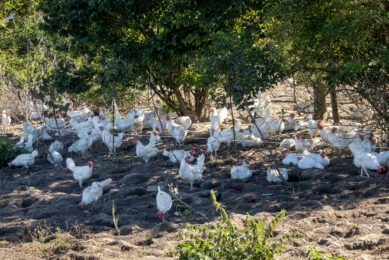New technique used to discover new viruses in poultry
In a search to find better ways to control viral enteric diseases in birds, US Department of Agriculture (USDA) scientists have unearthed a treasure trove of previously known and unknown viruses in poultry by using a powerful new molecular tool called metagenomics.
Each year, disorders like poult enteritis mortality syndrome, poult enteritis complex, and runting-stunting syndrome cause diarrhoea in turkeys and chickens, resulting in decreased weight, mortality and increased production costs.
Several viruses have been associated with enteric or intestinal diseases, but no single causative agent has been found.
Unlike traditional sequencing that characterizes genes in a single organism, metagenomics detects the nucleic acid of thousands of organisms in an entire community. Using this technique, Laszlo Zsak, researcher leader of the Endemic Poultry Viral Diseases Research Unit at the Agricultural Research Service (ARS) Southeast Poultry Research Laboratory in Athens, Georgia, discovered a new virus that might have future antimicrobial applications.
Phages
Zsak and ARS microbiologist Michael Day, also at Athens, found a short DNA sequence of the newly discovered virus and designed a technique to sequence its entire genome.
The virus, called "phiCA82," is the type of virus that naturally kills bacteria and belongs to a group known as "microphages" or phages, which can potentially be used as alternatives to antibiotics and as tools to fight multi-drug-resistant pathogens.
In the study, the scientists extracted and analyzed nucleic acid from poultry intestine samples gathered from US commercial poultry flocks infected with enteric diseases. In addition to the novel phage, common avian viruses like astrovirus, reovirus and rotavirus, and RNA viruses belonging to the Picornaviridae family were detected.
However, the scientists were surprised to discover previously unknown turkey viruses like picobirnavirus, a virus implicated in enteric disease in other agricultural animals, and a calicivirus, a type of virus often associated with human enteric diseases.
In earlier studies, Zsak and Day used metagenomics to identify and analyze for the first time the complete genome of a novel chicken parvovirus.
They also developed a PCR-polymerase chain reaction-assay that is highly sensitive and specific in detecting viruses in birds.
Source: ARS Sandra Avant











